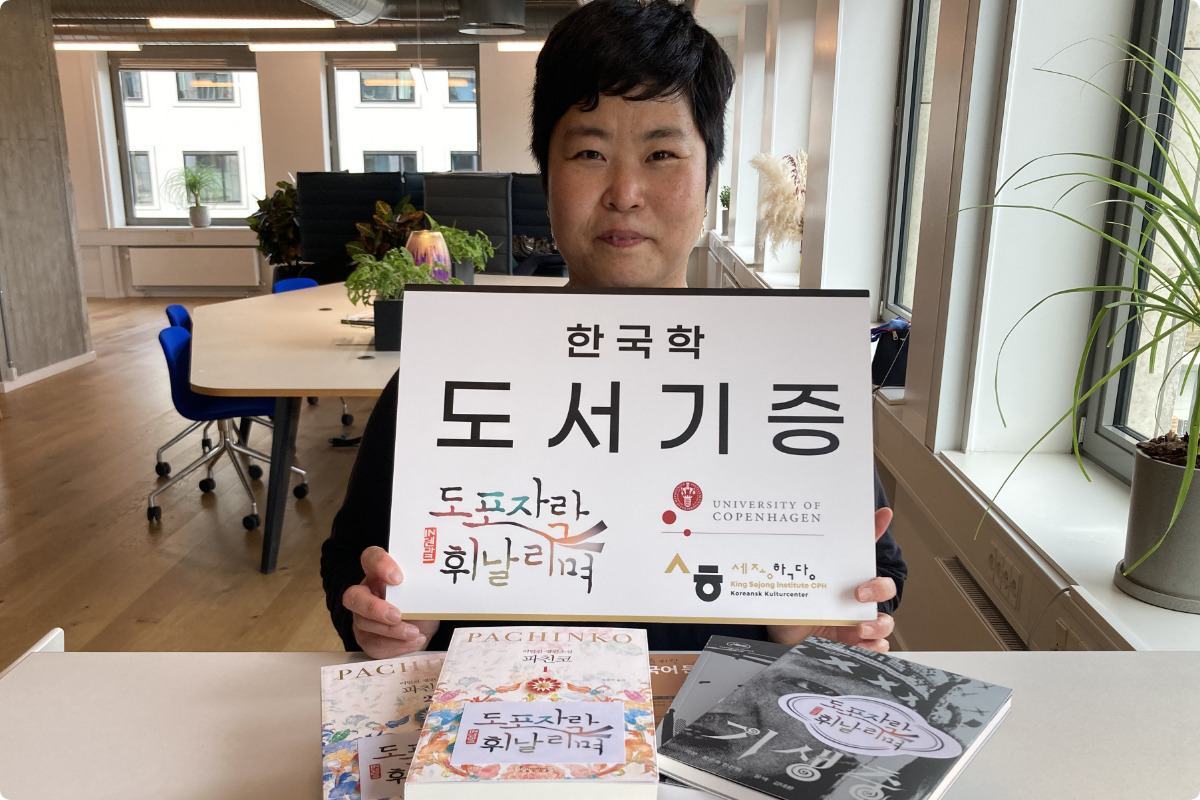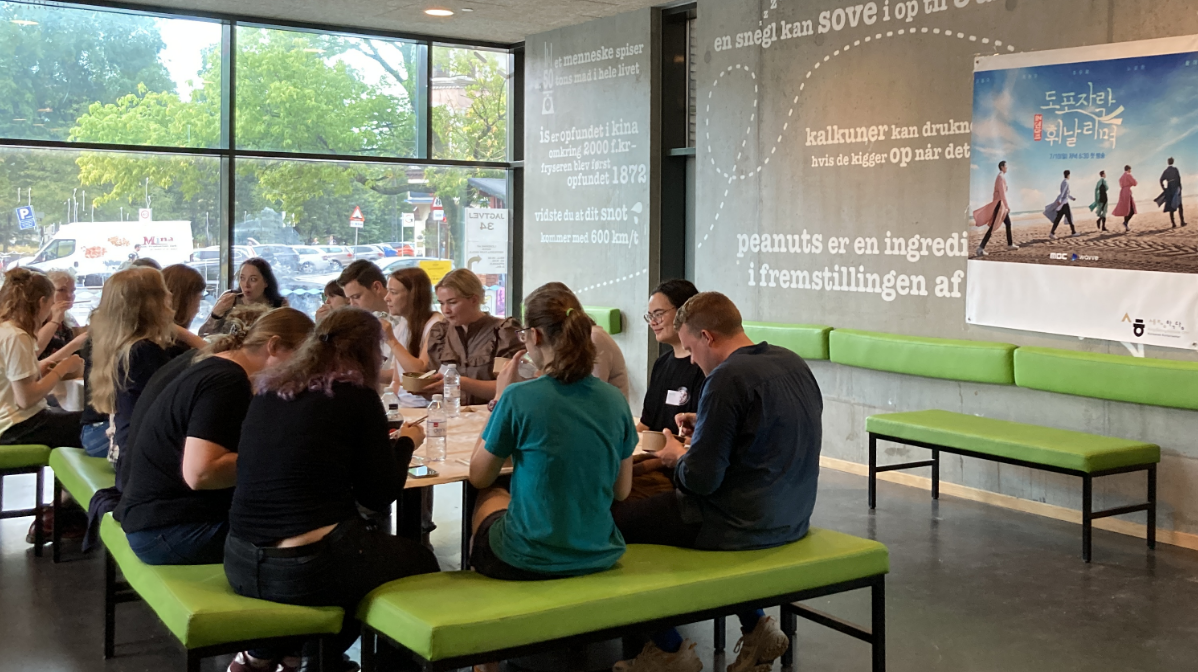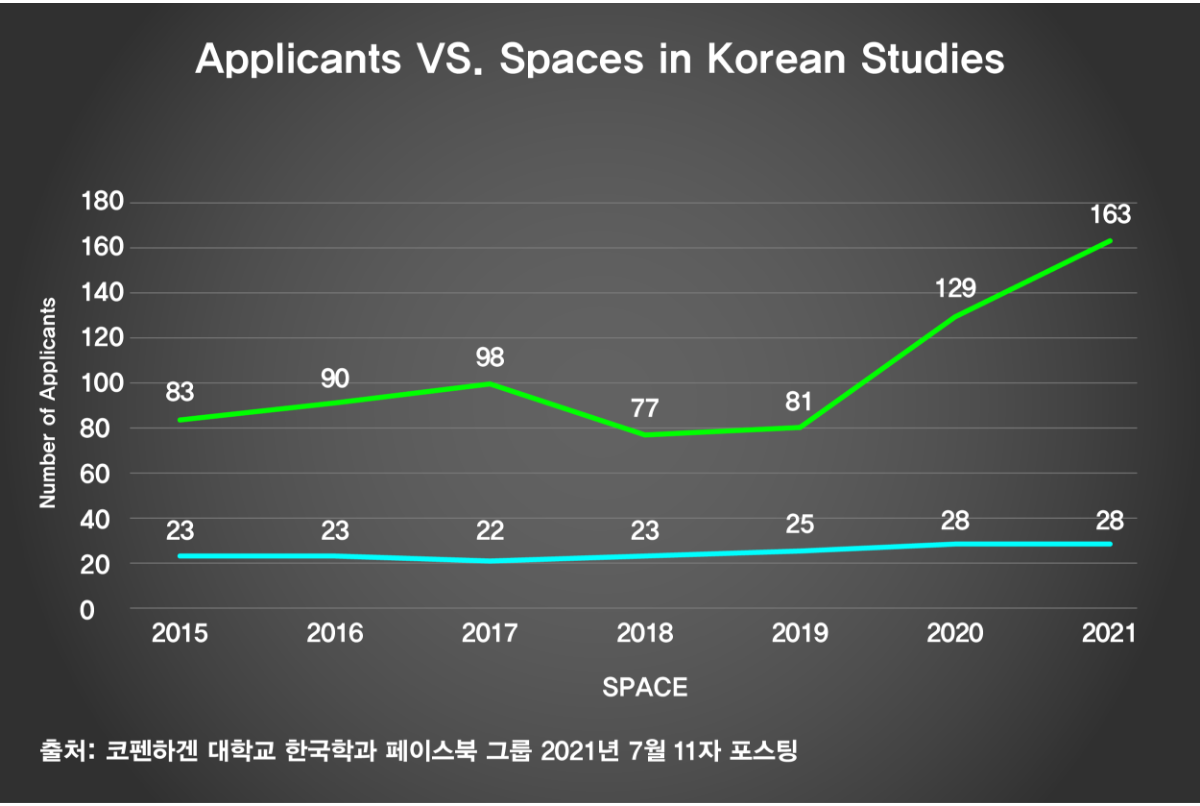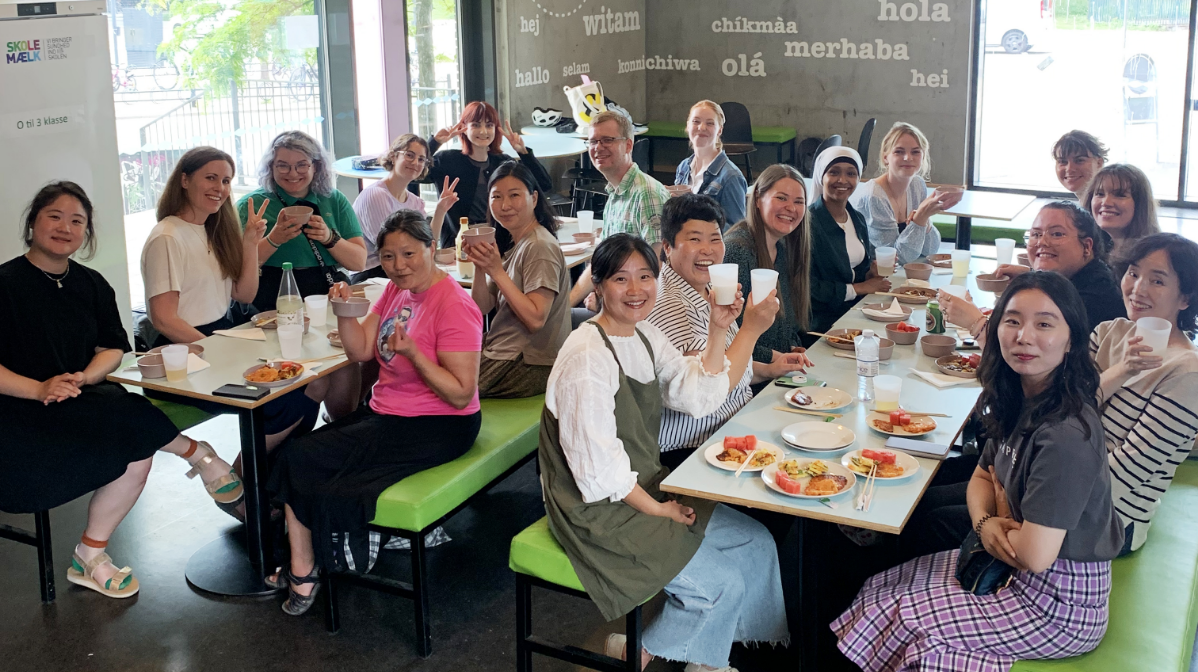KSI People we met in October : Director Lee Kyung-hee (KSI Copenhagen, Denmark)
Writer홍보협력팀
Tag
2022-11-17
View347
KSI People we met in October

MBC’s ‘Dopojarak’ features K-culture messengers promoting Korea in various parts of the world. The program’s Copenhagen episode, which aired on September 10th, featured celebrities selling traditional Korean goods, whose proceeds were donated to KSI Copenhagen in Denmark. We interviewed Director Lee Kyung-hee to learn more about the Institution’s initiative to spread the Korean language and culture in Copenhagen.
Nice to meet you, Director Lee Kyung-hee. You are in charge of KSI Copenhagen in Denmark. Seeing that there isn’t a Korean Cultural Center or a Korean language institution in Denmark, what prompted you to open a KSI location where the awareness of Korean culture or the language is still relatively low?
Like you mentioned, there isn’t a Korean Cultural Center or a Korean
language institution in Denmark. I believe that this is because of the
country’s low Korean immigrant population, not to mention the
country's relatively small population. When I first came to Denmark in
2015, Korean language education for adults was limited to the form of
language exchange among friends. Back then, the demand and efforts for
Korean language as a secondary language were growing rapidly in Korea,
but those demands weren’t being appropriately met locally. Then, I
learned about an after-school continuing studies curriculum for
adults, so I decided to open Koreansk Kulturcenter, an after-school
institution where those interested could come and experience the
Korean language and culture. I had been running the institution on my
own since 2018 until I applied to be designated as a new KSI location
in 2020, and ever since, I’ve been running KSI Copenhagen.
The demand for Korean language and culture in Denmark is typically
limited to students majoring in Korean studies, Korean adoptees, and
Korean immigrants. Each of these groups exchange Korean culture
through various events. I realized though that there are quite a few
people who wish to talk about and learn about the Korean language and
culture even though they do not belong to any of the above-mentioned
groups. I wanted to create a place where everyone interested in Korea
could come and have fun. I hope that KSI Copenhagen will continue to
be a place of gathering for all things related to Korea. Korean
language education is the essence of our institution’s existence, for
which we are always doing our utmost to provide systematic,
professional Korean education in all aspects.

Please tell us about KSI Copenhagen in Denmark. How many Korean teachers are there and who are the students? What makes KSI Copenhagen special?
We have four full-time staff members, including two Korean teachers,
one administrator, and myself, as an administrator as well as the
director. We also have local volunteers who come to help us during
events.
Most of our students are between being in their twenties and their
forties, and we are getting an increasing number of teenage students
as well. Our students, who are mostly female, either work or study. I
think their Korea-related experiences, whether directly or indirectly,
had an influence on their first interaction with the Korean
language.
Since we are located where the foundation of Korean culture is
relatively weak, we are small in size. This prevents us from putting
together larger events, but it sometimes helps us make quick decisions
and try new things without there being too many boundaries. We hope to
provide a wide range of cultural activities, all the while giving
access to a robust Korean language curriculum. We are open to trying
new things until we find what suits Denmark the most.
How do Danes perceive the Korean language? Are people interested in learning the Korean language, and if so, why?
Korea is geographically far from Denmark, so Korean culture is far from being mainstream. In terms of level of interest, Danes are mostly interested in the culture of Europe, followed by that of the United States, the Middle East, and East Asia. Even within East Asia, more people are interested in China and Japan than Korea because more resources are available for those two countries. On the other hand, the number of students majoring in Korean studies is rapidly increasing, and so is the number of K-pop fans in their teens and twenties. I am seeing a growth in interest in Korea and its culture, with the local media even producing a special feature show on Korean culture. There is even a K-pop singer encyclopedia in Danish. I’ve heard the number of students studying Korean has increased all over Europe, including France, Italy, and Germany. Denmark may be a second mover, but we are learning from the examples that are being set by these other European countries.

The students at our Institution can be divided into three main groups. First and largest are those people who are related to Korea in some way or another, whether they have been adopted from Korea or married to a Korean spouse. They have practical reasons to study the Korean language, which explains why they are often the most passionate and persistent with their studies. Although the number of Korean adoptees is decreasing, the number of people married to a Korean spouse is increasing. So, I believe that the percentage of people who start learning the Korean language to communicate with members of their family will continue to grow. The next group of people is K-pop fans. They are extremely enthusiastic about Korean culture, but since they are relatively young, some of them have trouble continuing their learning. Last but not least are those who have a general interest in Korea. They may be students who are pursuing a Korea-related degree in college, or they may be middle-aged people who are fans of Korean culture or cuisine, like kimchi.
We heard about your special ties with MBC’s ‘Dopojarak.’ Please share with us the story behind receiving the donation and how it was used.
The reaction from the local community was overwhelming while the
Dopojarak team was here shooting the show. Seeing these Korean
celebrities in person was unreal to begin with, and they even brought
with them traditional Korean goods that you can’t find here! The
production team told KSIF that they wanted the sales money spent
towards supporting Korean studies here in Copenhagen, so we, at KSI
Copenhagen, decided to get along with them.
We often need a lot of Korean books, but we rarely receive donations
of books or supplies, which we really need. And this time, we were
given books that professors and students of Korean studies alike can
make use of, which we believe will be a great help going forward. We
also used the donation to prepare bibimbap, which we shared with the
production team as we talked about the show. The team also donated the
traditional iron pot gamasot, which we hope to use at cultural events
to let our students experience the Korean culture. I would like to
thank the production team again for having provided such thoughtful
donations.
Last but not least, what are some of KSI Copenhagen’s goals going forward? What are your short-term and long-term priorities?
We would like to function as the central location for Korean language
education and culture in Denmark. First, our biggest priority is to
offer a high-quality educational experience with a competent group of
teachers so that students can fulfill their educational needs that
they themselves don't even know about. In addition, we want to provide
opportunities to experience Korean culture so that the Danish interest
in Korea goes beyond K-pop culture. We are thinking of offering folk
painting, craft, history, and Chinese character classes to provide a
bigger picture on the Korean language and culture.
Next on the list is the stable operation of the institution. To be
qualified to work at our institution, you need to be proficient in
English, Danish, or Korean, on top of possessing administrative and
teaching skills. My job as the director is to support our highly
qualified staff members in every way I can so that they don’t get worn
out and continue to serve our students and community.
Our activities are not just designed for non-Koreans. We continue to
remind ourselves of the effects our efforts have on Korean immigrants,
especially next generation Korean immigrants. We want our initiatives
to become a foundation, however small, for these young, future
generation Korean immigrants so that we can help them accept and love
their identity as they go out into the world and pursue their dreams.
Our goal, as a group of immigrants or as a Korean cultural
institution, is not to get every other foreigner to fall in love with
Korea and its culture. Rather, we want our organization to be a
shelter for those lovers of Korean culture, a place for them to come
together and enjoy Korean culture with those who share similar
interests. That’s all the assurance we need to go forward.


Knock, knock!
Let me tell you the story of King Sejong Institute

